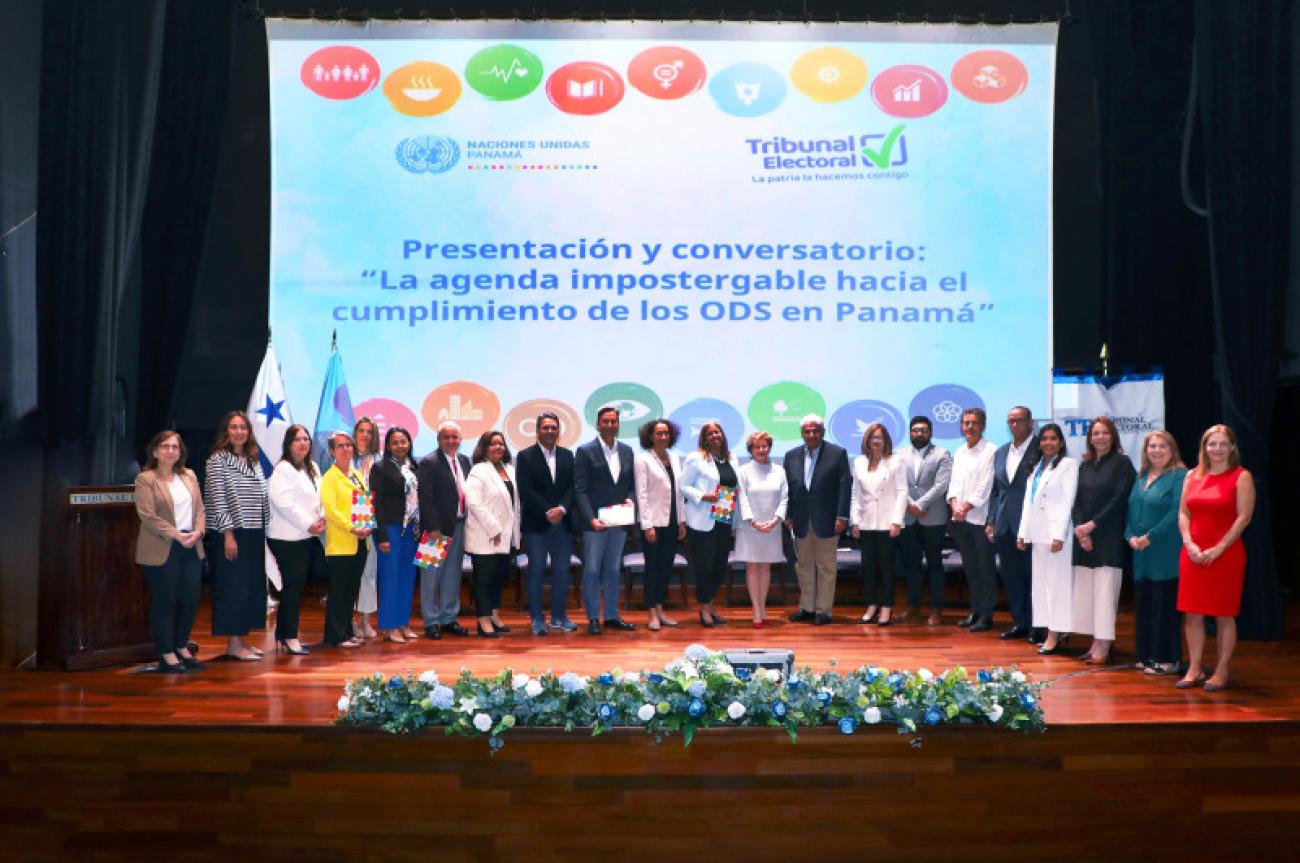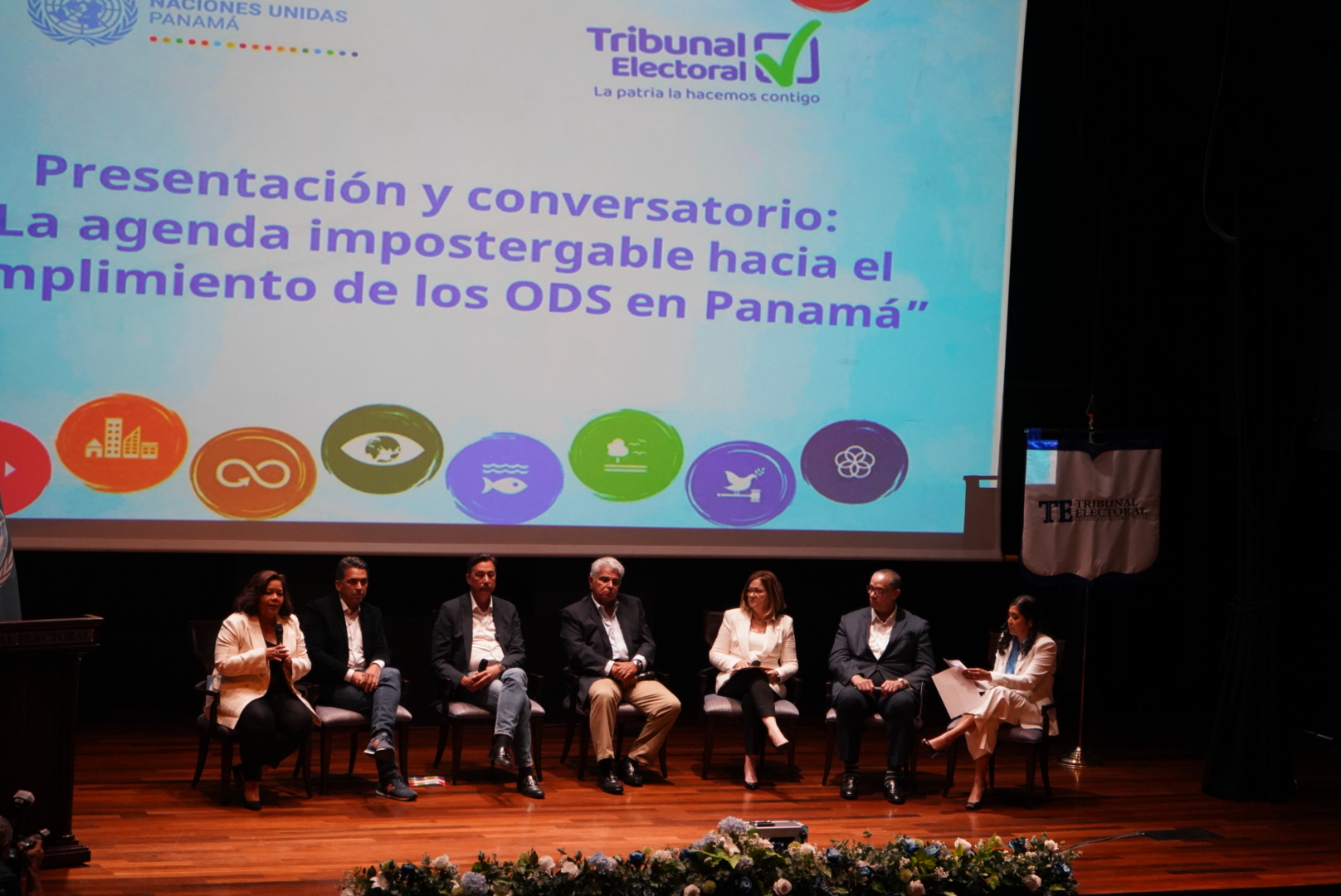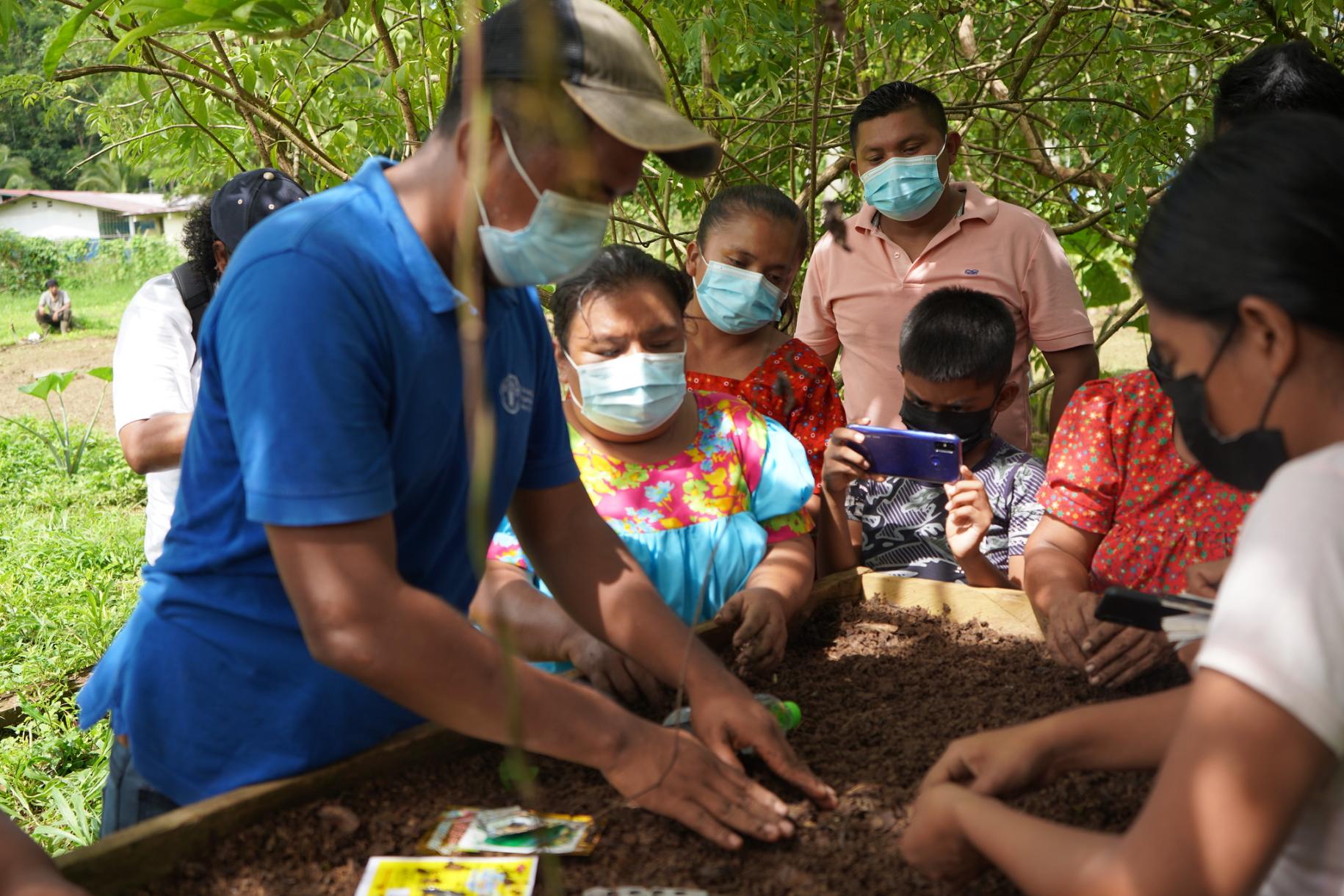Panama's Path to Equity: How the UN is Driving Change

Panama stands at a crossroads. Despite impressive economic growth and poverty reduction, persistent inequality remains a challenge. To address this challenge, the UN in Panama launched “The Unpostponable Agenda for the Sustainable Development Goals (SDGs) in Panama”, ahead of the crucial elections on 5 May 2024. Developed with the Electoral Court, this guide helps presidential candidates understand the SDGs and six key transitions that accelerate sustainable development.
These transitions, outlined by the Secretary-General during the 2023 Sustainable Development Summit, encompass critical areas such as food systems, energy, digital connectivity, education, jobs and social protection, and biodiversity and climate change. By focusing on these pathways, we aim to catalyze investments and drive progress toward the SDGs.
Charting a new course
My Office spearheaded the development of the "Unpostponable Agenda." This comprehensive guide, created in collaboration with all UN agencies, serves as the UN's vision for Panama's next national development plan to expedite progress toward the SDGs. It functions as both an advocacy tool and a channel for dialogue, engaging presidential candidates, the private sector, academia, and civil society in the process.
The Agenda acts as a roadmap to mobilize society towards interventions that guarantee rights and inclusion for marginalized groups like those in rural and indigenous communities, who comprise 40 per cent of the poorest population. Inequality remains high, exacerbated by limited access to quality services, economic opportunities, and stark regional differences. For example, poverty rates in indigenous comarcas ( semiautonomous reservations in Panama where most indigenous groups live ) reach a staggering 70 per cent.
To combat these inequalities the Agenda advocates for transformational change in education, from pre-school all the way to equipping students with employable skills, through collaboration between the United Nations Children's Fund (UNICEF), the United Nations Educational, Scientific and Cultural Organization (UNESCO), and the International Labour Organization (ILO). It also calls for localizing and expanding social protection and care systems in rural and indigenous communities, with a particular focus on women. This effort is being spearheaded by the United Nations Development Programme (UNDP), UN Women, the United Nations Population Fund (UNFPA), and ILO. Finally, the Agenda emphasizes strengthening nutrition and promoting a circular agro-economy with an emphasis on women-producers, bringing together the Food and Agriculture Organization (FAO), the World Health Organization (WHO), UNDP, international financial institutions, and the private sector for a lasting positive impact on Panamanians.

Collaboration is key
Panama's upcoming elections on May 5, 2024, are crucial, with eight candidates vying for the presidency. The new administration will shape a five-year strategic development plan aligned with Agenda 2030 and the UN Cooperation Framework. This is a historic moment to address persistent inequalities and achieve true equity. As the UN Resident Coordinator, I've advocated for strong partnerships with organizations like the World Bank to promote sustainable and inclusive growth for the most left behind.
Our collaborative efforts are already making a difference in food systems, education, social protection, job creation, and climate action. Panama's unique achievements in biodiversity preservation and carbon neutrality are a testament to this joint UN-state effort. We've also partnered with the Inter-America Development Bank and the private sector to transform education women’s economic empowerment in vulnerable indigenous communities. Most notably, the UN is supporting the development of a National Care System and the "Plan Colmena", aiming to improve service accessibility for marginalized groups and strengthen local governance.
A legacy to address
In Panama, indigenous and Afro-descendant communities face disproportionately high rates of poverty. Despite the country’s economic success, human development, specifically for these vulnerable groups, exacerbated by the pandemic, lags further behind. Panama’s GDP growth rate decreased to -17.9 percent during the pandemic, and unemployment increased to 18.5 percent. Already vulnerable populations were the most affected by job losses, particularly women, mothers of young children, the elderly, and those with lower levels of formal education.
Panama's new leaders need to focus on creating a level playing field. This means helping small businesses, especially those run by women, get access to loans and financial resources. It means supporting the National Plan for Family Agriculture and programmes that empower rural women, as well as promoting eco-friendly practices and creating markets for indigenous artisans and farmers. Investing in modern farming techniques and sustainable tourism will create jobs, while ensuring everyone has access to affordable healthcare and education. Crucially, Panama's human and natural environment must be protected from climate change, which impacts the poorest hardest.

The unpostponable path
In Panama, 'The Unpostponable' is the agenda of minimum standards needed to expand people's capacities and opportunities for a dignified life. What cannot be postponed is becoming a truly high-income country with equally high human capital development, inclusion, equality, and respect for human rights. This includes closing critical gaps to ensure a future where the benefits of development reach all Panamanians.
As Panama navigates this pivotal election, the world's eyes are upon it. With the "Unpostponable Agenda" as a powerful tool, Panamanians have the opportunity to choose a path of inclusive, equitable, and truly sustainable progress. We at the UN stand ready to support them every step of the way.
This blog was written by the UN Resident Coordinator in Panama Ana Patricia Graça. For more information about the UN's work in Panama, visit panama.un.org













